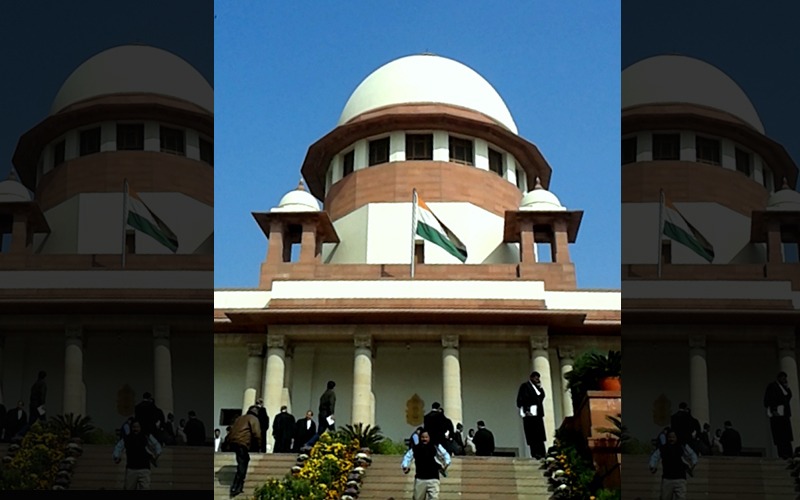Supreme Court says it cannot control elections on VVPAT case, reserves judgment for now

New Delhi/IBNS: The Supreme Court Wednesday said it is not the controlling authority for elections and therefore cannot dictate the functioning of the Election Commission, which is a constitutional authority.
The remarks came during the hearing on petitions seeking thorough cross-verification of votes cast on Electronic Voting Machines (EVM) with paper slips generated through the VVPAT system.
The court has reserved the judgment for now.
The bench of Justice Sanjiv Khanna and Justice Dipankar Datta questioned if it can act on mere suspicion.
Responding to concerns raised by advocate Prashant Bhushan, who is appearing for petitioner Association for Democratic Reforms, the court said: "If you are predisposed about a thought-process, then we cannot help you... we are not here to change your thought process."
The Supreme Court last week told the Election Commission of India that ‘there has to be sanctity in the electoral process,’ asking it to explain in detail the steps of cross-verifying VVPAT slips with EVMs.
VVPAT is a separate system for verifying votes that allows voters to confirm if their votes were recorded accurately.
In such a system, an EVM has a control unit and a balloting unit connected by a cable. These are also connected with a VVPAT -- Voter Verified Paper Audit Trail -- machine. This machine enables a voter to see if the vote was cast properly and went to the candidate he/she supports.
Currently, VVPAT verification is conducted on just five randomly chosen EVMs in each assembly segment.
Amid the Opposition's apprehensions regarding the EVM voting system, the petitions seek a direction to cross-verify every vote cast on EVMs with the paper slips generated by the VVPAT system.




